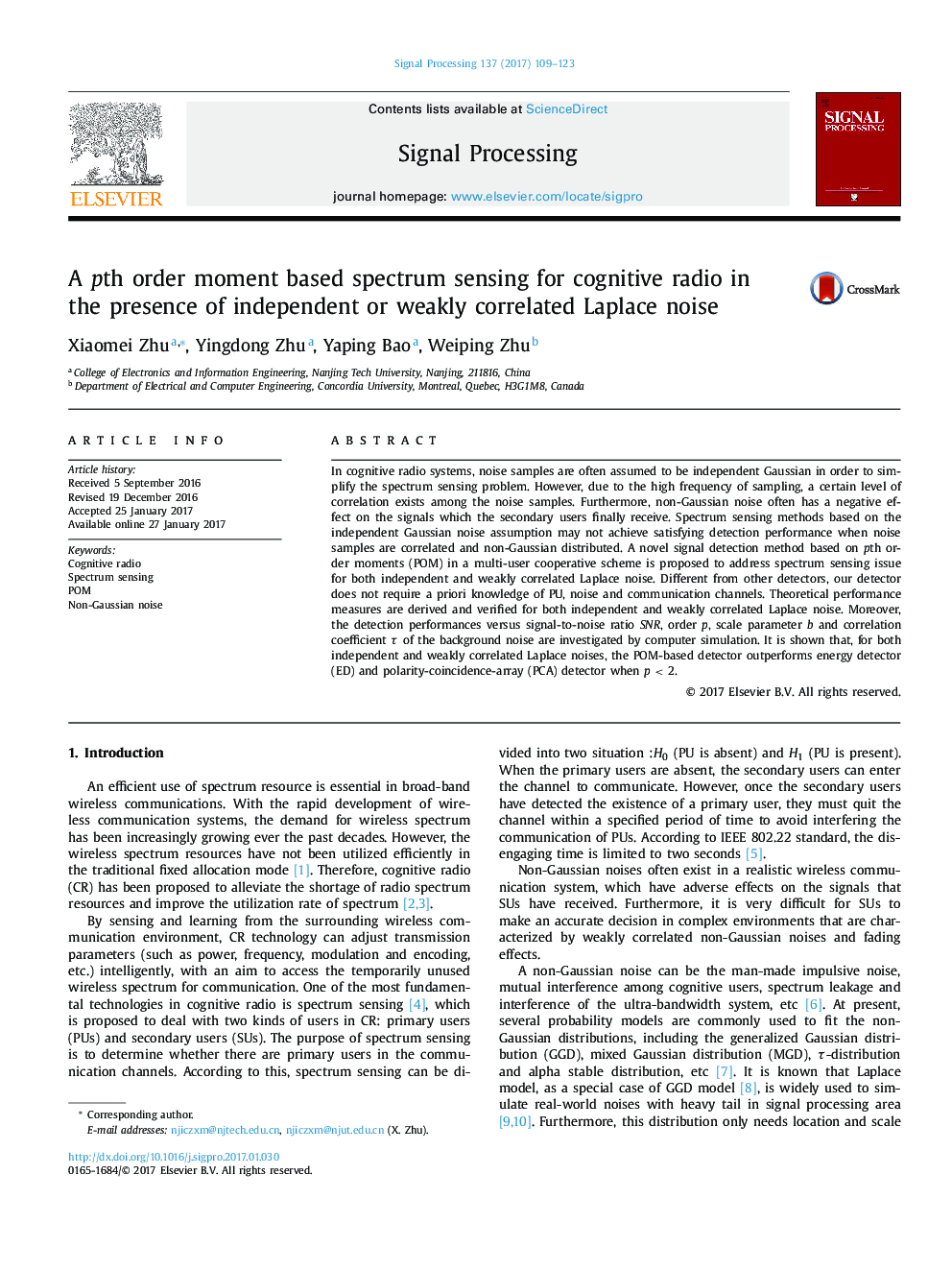| Article ID | Journal | Published Year | Pages | File Type |
|---|---|---|---|---|
| 4977660 | Signal Processing | 2017 | 15 Pages |
Abstract
In cognitive radio systems, noise samples are often assumed to be independent Gaussian in order to simplify the spectrum sensing problem. However, due to the high frequency of sampling, a certain level of correlation exists among the noise samples. Furthermore, non-Gaussian noise often has a negative effect on the signals which the secondary users finally receive. Spectrum sensing methods based on the independent Gaussian noise assumption may not achieve satisfying detection performance when noise samples are correlated and non-Gaussian distributed. A novel signal detection method based on pth order moments (POM) in a multi-user cooperative scheme is proposed to address spectrum sensing issue for both independent and weakly correlated Laplace noise. Different from other detectors, our detector does not require a priori knowledge of PU, noise and communication channels. Theoretical performance measures are derived and verified for both independent and weakly correlated Laplace noise. Moreover, the detection performances versus signal-to-noise ratio SNR, order p, scale parameter b and correlation coefficient Ï of the background noise are investigated by computer simulation. It is shown that, for both independent and weakly correlated Laplace noises, the POM-based detector outperforms energy detector (ED) and polarity-coincidence-array (PCA) detector when p < 2.
Related Topics
Physical Sciences and Engineering
Computer Science
Signal Processing
Authors
Xiaomei Zhu, Yingdong Zhu, Yaping Bao, Weiping Zhu,
